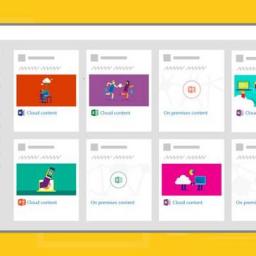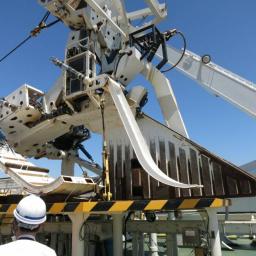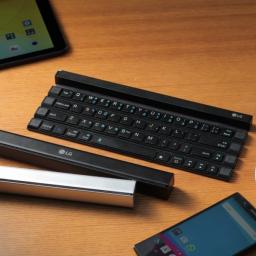In an open letter to T-Mobile customers with an unusually furious tone, CEO John Legere announced an
immediate crackdown on 3,000 users engaging in unauthorized tethering on "unlimited 4G LTE" data plans, calling the practice "stealing data". He claims the affected users are "hacking" and "using workarounds to conceal their tethering usage" to circumvent the 7 GB cap on tethered ("Mobile HotSpot") data, allowing them to use as much as 2 terabytes of data in a month, and this behavior "could eventually have a negative effect" on other T-Mobile customers. "Customers who continue to do this will be warned, then lose access to our Unlimited 4G LTE smartphone data plan, and be moved to an entry-level limited 4G LTE data plan."
Legere is
walking a fine line, because the FCC has been very clear that "unlimited means unlimited." FCC Enforcement Bureau Chief Travis LeBlanc said in June, "The Commission is committed to holding accountable those broadband providers who fail to be fully transparent about data limits." The commission fined AT&T $100 million for misleading mobile customers about its "unlimited" data plans, throttling data speeds after customers hit a certain data cap. Tracfone also got hit with a $40 million in January for falsely advertising its unlimited plan. Verizon had to abandoned plans to slow down 4G connection speeds for unlimited data plan customers after FCC Commissioner Tom Wheeler openly called the plan "disturbing." The FCC issued a similar notice to T-Mobile last year, which improved its notifications when it throttles unlimited plan customers.

This morning, Wikipedia parent organization Wikimedia announced
they have banned 381 user accounts that were engaging in "undisclosed paid advocacy." In other words, they were posting promotional articles to the user-editable online encyclopedia, without revealing that they were paid to do so. The articles being posted were related to businesses, business people or artists, and they often included biased or skewed information alongside unattributed material and potential copyright violations. As a result of the investigation, editors on the site have also deleted 210 articles that were created by these accounts.
Back in October 2013 Wikipedia first sent
a cease-and-desist letter to the firm Wiki-PR, which promoted its ability to help article subjects claim their "top spot in Google search results." Wikipedia said then that it banned 300 accounts associated with the firm (which argued it only had 45 people working for them.) That makes today's 381 accounts ban actually larger than the Wiki-PR scandal.
The New Horizons spacecraft - currently 3 billion miles [4.9 billion kilometers] from Earth - is just starting to transmit the bulk of the images and other data, stored on its digital recorders, from its historic July encounter with the Pluto system. Now,
NASA scientists have revealed plans to send the spacecraft on another survey mission to a distant and small Kuiper Belt object (KBO), dubbed 2014 MU69, around one billion miles away from Pluto.
Unlike asteroids, KBOs have been heated only slightly by the Sun, and are thought to represent a well preserved, deep-freeze sample of what the outer solar system was like following its birth 4.6 billion years ago. 'The detailed images and other data that New Horizons could obtain from a KBO flyby will revolutionize our understanding of the Kuiper Belt and KBOs.' A visit to the Kuiper Belt will take the spacecraft truly into the unknown. Little is understood about the mysterious dots of light that orbit out there.
It will become the first spacecraft to visit one of the icy blocks encircling our solar system in the ring of debris called the Kuiper Belt. New Horizons will perform a series of four maneuverers in late October and early November to set its course toward 2014 MU69, which it expects to reach on January 1, 2019. Any delays from those dates would cost precious fuel and add mission risk. After that, the spacecraft will continue to glide out beyond our solar system into the galaxy almost unchanged for eternity, but it will only be possible to maintain contact and perform observations with it while its nuclear power source lasts, which could be another 20 years.
There is now a public campaign to push NASA to into allocating the funds necessary to extend the New Horizons mission by writing to members of congress. Campaigners have calculated that it costs $0.15 per American per year for the New Horizons mission.
Previous story:
http://pipedot.org/2VNX
Apple now works with
PayAnywhere, a mobile credit card reader, accept Apple Pay payments for businesses and individuals.
This new PayAnywhere Mobile reader accepts Apple Pay, other contactless NFC payments, traditional magnetic stripe credit cards and is EMV-capable. It is also offering merchants $5000 free in Apple Pay transaction processing with a new PayAnywhere account, an unprecedented offer in the industry.
Security and privacy is at the core of Apple Pay. When you add a credit or debit card to Apple Pay, the actual card numbers are not stored on the device, nor on Apple servers. Instead, a unique Device Account Number is assigned, encrypted and securely stored in the Secure Element on your device. Each transaction is authorized with a one-time unique dynamic security code.
They are the
first solution provider in the United States to distribute an Apple Pay/iPhone/iPad acceptance device.
The cost of this device will be $39.95, and the PayAnywhere Mobile app is free in the App Store. It will be available in the month of September.
Read more details from
hereFreeBSD hackers Jordan Hubbard and Kip Macy surprised an audience of Bay Area FreeBSD Users in August 2015 by laying out their version for a new architecture, based vaguely on BSD but with a microkernel and an event-driven framework consisting of something like libdispatch and launchd. Those are big changes if you are familiar with what FreeBSD has looked like for all of its life.
The good news is, this doesn't mean the destruction of the FreeBSD we all know and love. In fact, Hubbard, who is also the CTO of iXsystems (developers of FreeNAS and PC-BSD, both products derived from FreeBSD) aren't aiming to impact FreeBSD but rather change the fundamental architecture of iXsystems' own products.
The slide deck walks you through the proposed, new architecture. Better still,
watch the talk yourself, before heading
herefor some useful comments to help sort it all out. Others are watching this project with suspicion, too. Check out
this excellent rebuttal on the DarknEdgy blog, which suggests, among other criticisms, that the Mach microkernel is an anachronism.
As a FreeBSD fan, I'm glad they're treating this as a separate product and not hacking up the FreeBSD source tree: that gives us time to see how this shakes out.
The article comes out of the Australian press, but unless there's something truly unique about the Australian job market, it's almost certainly true elsewhere as well:
a recent study shows more than half of young Australians are receiving college education to persue careers that will soon no longer exist. Thank robotics, industry consolidation, and the nature of the markets for the shrinking number of ways you will some day be able to earn a living.
There's a flip side to the debate, of course: there are certainly new things coming that haven't even been invented yet, that will provide job opportunities. But the trick is positioning yourself appropriately to take advantage of the new chances.
The not-for-profit group, which works with young Australians to create social change, says the national curriculum is stuck in the past and digital literacy, in particular, needs to be boosted. Foundation chief executive Jan Owen says young people are not prepared for a working life that could include five career changes and an average of 17 different jobs.
She says today's students will be affected by three key economic drivers: automation, globalisation and collaboration. "Many jobs and careers are disappearing because of automation," Ms Owen said. "The second driver is globalisation - a lot of different jobs that we're importing and exporting. And then thirdly collaboration which is all about this new sharing economy."
How does one future-proof his/her life and career?
Windows 10 might be a welcome respite from recent, unloved versions of Microsoft's flagship operating system, but it's now well-known that Win10 captures an unusually large amount of user data and sends it back to Microsoft. That might have passed muster 20 years ago (
happy birthday, Windows 95!) but customers these days are increasingly aware and concerned over their personal data and what becomes of it.
Enter the Verge, with a
User's guide to the Windows 10 End User License Agreement (EULA), which combs through the document and tries to make sense of the implications for users. Problem is, even if you take a Microsoft-friendly approach to the analysis, the language obviously gives Microsoft lots of leeway to interpret key provisions as it sees fit.
Had your daily dose of irony yet? Then be aware the Verge has some privacy issues of its own. In fact, it's now known that the Verge
sells your user data to upwards of twenty other companies. Better to browser this one with Lynx or with every script-blocker you own set to "maximum."

Work in just about any big office and you have almost certainly been subjected to a semi-built corporate Sharepoint site your boss or the HR department hopes you will use rather than circulating important documents via email. And if you are like most tech-savvy folks, you have found it bafflingly difficult to use.
Microsoft hopes to correct that well-deserved reputation, and is
launching a preview of Sharepoint Server 2016 to raise expectations about the new product.
Microsoft says its made "deep investment in HTML5" to give you "capabilities that enable device-specific targeting of content. This helps ensure that users have access to the information they need, regardless of the screen they choose to access it on." And your users get a consistent experience whatever device they choose to wield, including on touch-enabled devices.
A new "cloud hybrid search" will permit users wielding "SharePoint Server 2013 and Office 365 to retrieve unified search results through a combined search index in Office 365."
The index for that search resides in Office 365, one of many features billed as letting you take advantage of hybrid cloud. The idea is that your on-premises SharePoint can pop the index, or other data, into Microsoft's cloud so you get the on-prem performance you want without having to bulk out yours servers. But of course you do get into PAYG territory with the cloud.
That certainly qualifies as what the Register calls "Buzzword Compliant" but maybe there's true improvement there, too. Search for the expression "Sharepoint sucks" today and you'll get 209,000 hits
including this one. Stick around and see if next year Microsoft turns the corner and makes Sharepoint something people find useful and effective.

Japan is home to an extremely important vessel:
it's the ship that lays the trans-oceanic cables that form the backbone of telecommunication, that is, the Internet. Satellites play an increasingly important role in shipping packets, but the bulk of the connections pass through underwater cables.
The laying process involves checking submarine geography to avoid steep rises and falls, and then calculating tide movements and the trajectory of the falling cables in relation to ship speed, the firm said. Only then are the cables laid and buried by the Subaru, which was built in 2000.
The cables, encased in sheaths of rolled metal, are laid and buried deep - at an average of 1,000-1,500 meters below the sea surface - so as not to interfere with fishing vessels. However, the Subaru can lay cables much deeper at 8,000 meters below the waves.
Speaking of backbones, the Internet's backbone - in the
protocol sense of the word - remains unfortunately vulnerable. The issue is the Border Gateway Patrol protocol, at the heart of routers everywhere. And its vulnerabilities are not being tackled with a level of effort commensurate with their importance.
Large routers operated by Internet service providers and major corporations use BGP to figure out how to get data between different places. Each of these major routers turns to others like itself-ones operated by other companies-for the information it needs to most efficiently dispatch data to its destination. Companies operating the routers manually choose which other routers theirs will trust.
Unfortunately, BGP doesn't have security mechanisms built in that allow routers to verify the information they are receiving or the identity of the routers providing it. Very bad things can happen when routers spread incorrect information about how to route data, intentionally or otherwise.
That problem has been known for decades. It was the basis of the hacking group L0pht's 1998 claim before Congress that they could take down the Internet in 30 minutes. But incidents that have illuminated BGP's flaws have prodded some security companies to take it more seriously.
Read more about it
at Technology Review, who is reporting on one of the important presentations revealed at the 2015 Blackhat Conference
discussed here on |. earlier this month.

If you are frustrated with your smartphone's soft keyboard, you aren't alone. Despite their advocates, many gadget-users feel more productive on a physical keyboard, and that means there's a market for innovative or high quality ones.
Get ready for the IFA 2015 conference in Berlin, Germany, where LG Electronics (LG) will present a
new, portable, rollable wireless keyboard. Unlike other portable keyboards on the market, LG's Rolly Keyboard (model KBB-700) folds up along the four rows to create an easy-to-carry "stick" that fits into your pocket, purse, or briefcase.
The typing on Rolly Keyboard is extremely comfortable because its 17mm key pitch is nearly as generous as the 18mm key pitch found on most desktop keyboards. It is made of impact-resistant and durable polycarbonate and ABS plastic. So the typing on the keyboard offers satisfying tactile feedback not found on flexible silicone keyboards. Two sturdy arms fold out to support smartphones as well as tablets in an upright position. It simply unfolds the Rolly Keyboard, enables the auto pairing function to connect easily to two different devices at the same time via Bluetooth 3.0 with the ability to toggle between the two with a simple key press. A single AAA battery powers the keyboard for up to three months of average use.
Engadget reports, "The keyboard is just the start: the company says it plans to offer even more "input devices" in the next few months." Recently, LG has announced that from the end of August it will start rolling out
four new 4K Ultra HD OLED TVs across its US, UK, German and Korean markets. The four new models add new features and form factors to the brand's existing OLED range.




